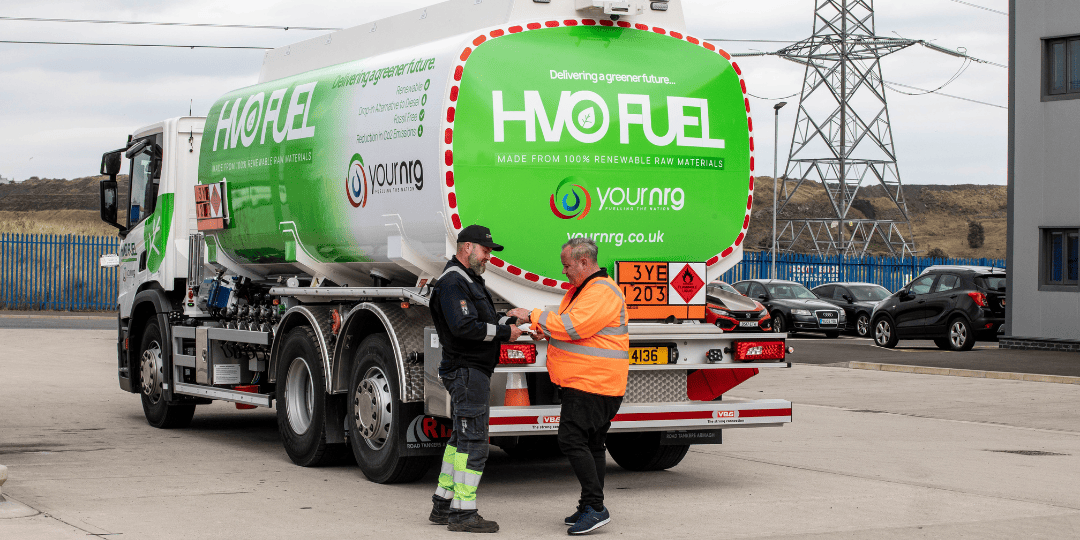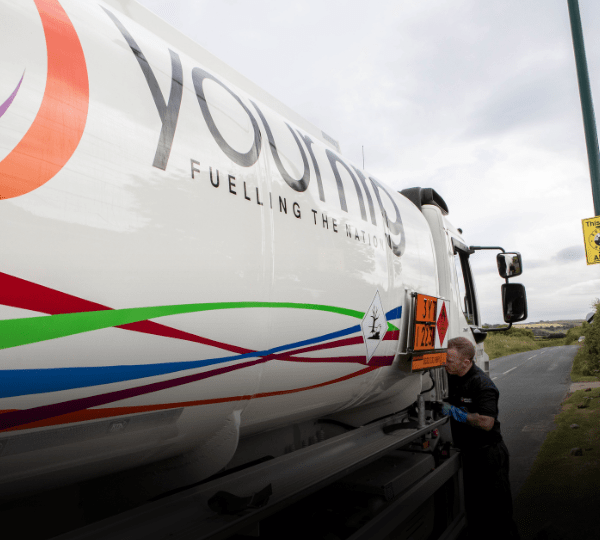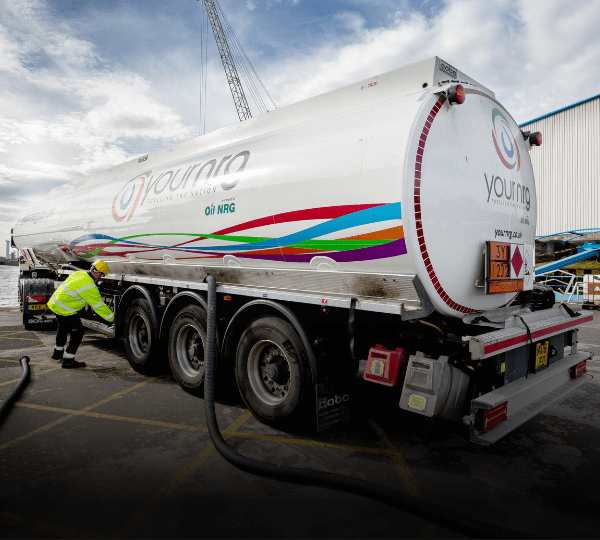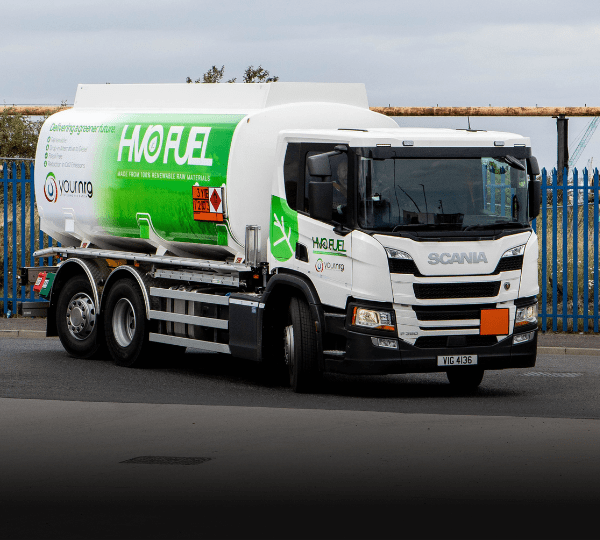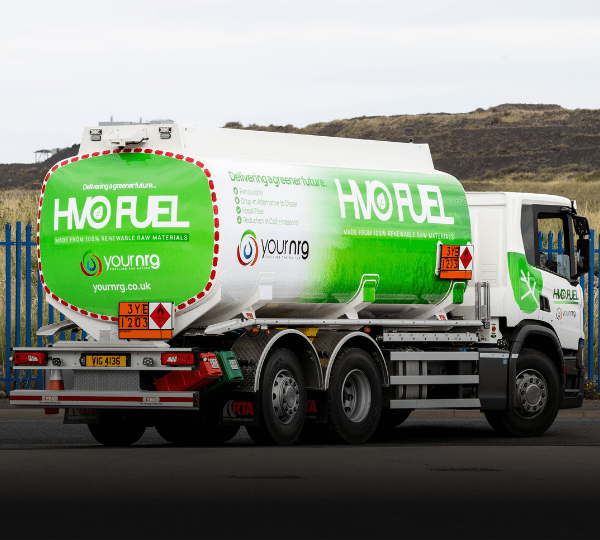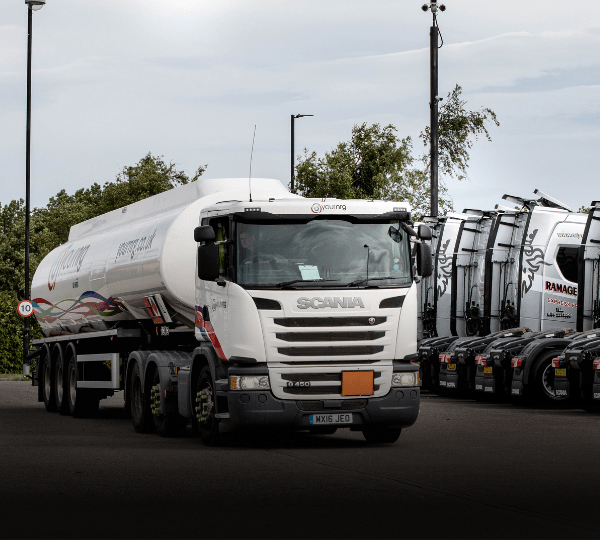The specifications of HVO fuel make it a superior fuel choice to fossil diesel. This is thanks to its cold temperature performance, ease of handling and storage, and its superior combustion. All of which can help your business meet its environmental requirements.
In this guide, we take a closer look at HVO fuel facts, specifications and uses.
What colour is HVO fuel?
Often referred to as green diesel, HVO is a colourless and odourless alternative to fossil diesel. It’s a drop-in, cleaner-burning fuel that can be used instead of white or red diesel and has been approved by a large number of OEMs for use in a range of heavy-duty and off-road vehicles, as well as passenger cars.
HVO fuel for oil boilers and domestic heating
In addition to vehicles and machinery, HVO fuel can be used as an alternative to domestic heating oil in oil boilers and central heating systems, providing you with a simple green heating solution. This simple switch can drastically reduce the carbon footprint of your home or office, as the majority of household CO2 emissions are as a result of heating.
In the majority of cases, switching to this fossil-free heating future fuel is quick and easy. However, we do recommend seeking the advice of a heating engineer. This is because older oil boilers may require upgrading in order to convert to this lower emission fuel.
HVO fuel vs diesel
There are many differences between HVO and traditional red or white diesel. In terms of the environment, the largest difference between these two fuels is their emissions rates, with fossil-free HVO producing up to 90% lower CO2 emissions. This is due to the structure and composition of these two fuels, as HVO fuel contains uniform hydrocarbon molecules which allows it to burn more cleanly.
HVO fuel is also free from contaminants such as metals, and it’s free from aromatics. Fossil diesel, on the other hand, is a less pure fuel. It contains a larger quantity of aromatics, sulphur and metals. This leads to particular build-up in the engine and results in more emissions being released into the atmosphere.
HVO fuel vs biodiesel
HVO fuel is often called biodiesel. However, HVO actually belongs to a group of biodiesels that can be split into three distinct categories: first-, second- and third-generation biodiesels. While each of these biodiesels offers a fossil-free alternative to traditional fuels, every generation is made differently and boasts different green credentials.
First-generation biofuels, or biodiesels, are usually created directly from crops, while second-generation typically use waste products and residues, such as oils and animal fats. Additionally, first-generation fuels often require initial changes to vehicles or infrastructure, whereas second-generation meet EN 15940 standards for paraffin fuels, which means they can be used without any modifications
HVO fuel is classified as a second-generation biofuel as it’s manufactured using waste products and its use does not require infrastructure updates.
HVO fuel CO2 emissions
When comparing HVO with fossil diesel, HVO produces up to 90% less CO2, making it a more environmentally friendly alternative. The difference in emissions can be seen when we look at the CO2 released per 1,000 litres of each fuel. Traditional diesel produces 3.6 tonnes of CO2 per 1,000 litres, compared to just 195kg per 1,000 litres of HVO.
HVO fuel facts, data sheet and specifications
The specifications of HVO fuel showcase its environmental properties. For example, the flashpoint of HVO exceeds 70°C and its freeze point is below -30°C. Additionally, HVO contains virtually no sulphur, metals or contaminants, it does not bind to water and it’s not susceptible to oxidisation or degradation.
HVO also has a lower fuel density than conventional diesel. At 15°C, HVO has a density of 778kg per litre, which is significantly lower than the 875kg per litre of diesel. Lastly, HVO boasts a high cetane number, which makes it a cleaner fuel when used on its own and also allows it to blend with conventional fossil diesel.
HVO fuel MPG
When we look at miles per gallon, you can expect HVO fuel to be as economical as traditional red diesel. While it can be more expensive per litre, this fuel can be stored in bulk and has a shelf life of up to 10 years. As such, you may be able to secure a better price by buying HVO in large quantities.
Here at Your NRG, we offer great value on all purchases of HVO fuel. This includes no hidden fees, so you can secure high quality fuels at affordable prices.
HVO fuel tax
HVO fuel is taxed at the same rate as fossil diesel, as the UK Government classes both as heavy oil. This means HVO is charged at a rate of 20%. However, the government introduced lower rates in March 2022, cutting the duty on HVO and diesel by 5 pence per litre (ppl). These rates will last until 23rd March 2023.
HVO fuel for your fleet, machinery and commercial heating
Whether for agriculture, rail and construction, or distribution, manufacturing and commercial heating, HVO fuel can be used for a range of purposes. To find out how your business can benefit, simply get in touch with the leading HVO fuel suppliers .
The Your NRG team is waiting to help you switch to future fuels and help your business meet its net zero targets. Ready to start your fuel supply? Get a quote and order with Your NRG today.
